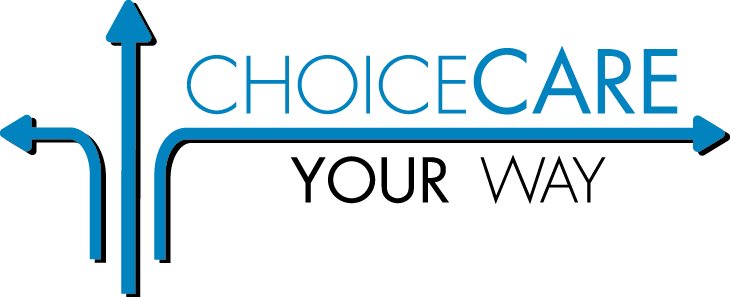Learn more at www.WNCCaregiverConnections.com
Frequent hospitalizations
As your loved one ages, they might start needing the hospital more often, frequently through the Emergency Room. While emergencies are unplanned, if they happen frequently, it’s best to be prepared with a few physical conveniences, some knowledge about key hospital procedures, and a readiness to make treatment decisions, perhaps with very little notice.
Creating an Emergency Room "go bag"
 A visit to the ER can be greatly improved by having a prepacked “go bag.” (By the way, this go bag can do double duty for disaster preparedness and the need to evacuate.) Some items you might decide you just want to store in the bag, such as advance directive documents. Others might be worth having a duplicate of so you can be prepacked and ready to go—for example, a spare phone charger or a copy of your relative’s medication list updated each time a medicine is added or deleted.
A visit to the ER can be greatly improved by having a prepacked “go bag.” (By the way, this go bag can do double duty for disaster preparedness and the need to evacuate.) Some items you might decide you just want to store in the bag, such as advance directive documents. Others might be worth having a duplicate of so you can be prepacked and ready to go—for example, a spare phone charger or a copy of your relative’s medication list updated each time a medicine is added or deleted.
Emergency medical document folder. Gather a list of current doctors, a list of important contact numbers (family members, friends, legal decision makers), and a list of current medications, both prescription and over the counter. Hopefully, your loved one has created an advance directive that includes a healthcare power of attorney document naming a decision maker if your relative is unable to speak for themself. This document would also include a living will with guidelines about your loved one’s life support preferences. If your relative has a MOST or a Do Not Resuscitate order (sometimes called “Allow Natural Death”), include that as well. Last, if your relative has a personal medical record that summarizes their medical history and drug allergies, that would be useful.
Personal items to pop in the bag before you go. Wallet with photo ID, insurance cards, and a credit card. Phone and charger. Hearing aids, glasses, dentures, and protective containers for each. A small comfort item (family photo, rosary or other religious talisman, a favorite blanket or stuffed animal for a person with dementia).
Helpful items. Nonperishable snacks such as protein bars, nuts, or trail mix can keep everyone’s stamina up. A bottle or two of water can help your relative stay hydrated, but also comes in handy to clean up any messes. A change of clothes is also useful in case of an accident. A pen and paper for taking notes is helpful. A puzzle book or other light entertainment for you or your loved one. An envelope with five or ten dollars allows for vending machine purchases if needed.
Things to avoid bringing. Jewelry, cash, and high-end electronic devices, as they might be stolen, especially if the ER visit results in an overnight stay.
Return to topWhat is "observation status"?

Imagine that your relative goes to the hospital for an outpatient procedure. That’s no big deal. But their blood pressure skyrockets during the event. So the hospital decides to keep your family member overnight for monitoring.
Your loved one has a bed. They receive meals. You might assume they’ve been admitted as an inpatient. But in this example, they are on “observation status” only.
Financially, this distinction could be very important. To Medicare, patients on observation status are outpatients. This means Medicare will likely cover at least some of your relative’s hospital visit. But for observation, Medicare pays under Part B. This could mean greater copays and additional uncovered expenses. Also, money out of pocket.
Only those formally admitted for three overnights are covered by Medicare for follow-up care in a skilled nursing facility (SNF). The cost of SNF care adds up VERY quickly.
Medicare has strict rules for hospital admission. If a doctor is unsure, they must put the patient in observation status. Ideally, when this happens you receive a notification called MOON (Medicare outpatient observation notice). This notice explains why the care is considered outpatient instead of inpatient. It usually also clarifies the difference in coverage for the hospital and for any aftercare.
If you feel your loved one has been wrongly assigned, you can appeal the decision. You may want to talk first to someone in the hospital billing office. They can help you determine what the out-of-pocket costs will be.
Avoid unpleasant surprises! Anytime it looks like your loved one will be staying overnight, ASK several people to confirm inpatient or observation status.
Return to topMaking medical decisions in a crisis
If you are named as healthcare decision maker for your loved one, you may be called upon to make very important decisions on very short notice.
At a time like this, it’s easy, and very human, to get caught up in fear. Fear does not make for the best decisions. If you can, call a friend and have them join you. You don’t have to do this alone.
Viki Kind, ethicist and author of The Caregiver’s Path to Compassionate Decision Making, suggests these steps to promote your clearest thinking:
- Prepare a 911 list. Before a crisis—why not today?—create a reminder list to draw upon before rushing out the door. Do you have a child or pet you will need to arrange care for? An employer to inform? Do you have your necessary medications, food, and water? Maybe a sweater and a book, and paper for note taking? Phone charger? Your wallet?
- Steady your mind. Give yourself a few minutes to use a calming strategy: pray, call someone, walk around the block. Focus on the positive: “I can stay clearheaded and do what’s needed.”
- Clarify the timeline. You may hear that a decision is needed “now.” Ask what “now” really means. In the next hour? Or by 5:00 pm tomorrow?
- Gather information. Ask about all the treatment options. In addition to the benefits for each one, ask about risks and possible negative outcomes. Find out about the long-term consequences.
- Review and decide. Reread your notes. Consider the options next to your loved one’s values and priorities. Talk things through with a friend or trusted professional. Perhaps create a table of pros and cons for each option. Confirm for yourself the logic of your thinking, and go forward with your decision.
Contact us at 828-772-4714
